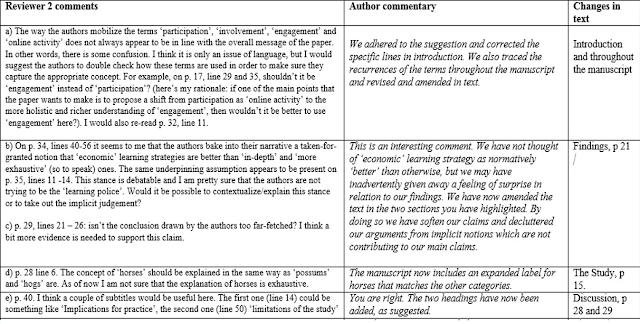Research Training | Interdisciplinary Digital & Sustainable Sandpit Records
Copyright from University of St Andrews, Research Impact Team.
Who Can Help You Develop Your Idea?
1) Ask senior colleagues
2) Ask peers
3) Sign up for newsletters
4) Societies
5) Research online
6) Creative sounding board
7) University
8) Outside the university
9) Research Networks
How to Make Your Network Work for You?
1) Identify your goals.
2) What information do you need?
3) Who do you know who knows this?
4) What do you have to do to get this information?
Strategies for Building Your Network
1) Promoting your work on social media
2) Website
3) Keep in touch with previous contracts
4) Join committees, societies, associations
5) Map your contacts (personal and professional)
6) Attend conferences/events
7) Follow up with new connections
And how can you input into the growth of your network?
At Conferences/Events
1) Engage on Twitter
2) Apply to speak or present a poster
3) Ask to give a talk at another university
4) Find out who is going ahead of time
5) Don't just stick with your own group
6) Ask questions
7) Consider attending events outside your sector
Interdisciplinary Working
Active listening techniques include:
1) Being fully present in the conversation
2) Showing interest by practicing good eye contact
3) Noticing (and using) non-verbal cues
4) Asking open-ended questions to encourage further response
5) Paraphrasing and reflecting back on what has been said
6) Listening to understand rather than to respond
7) Withholding judgment and advice
Are You Working Collaboratively?
1) Do you and your collaborators have a complex challenge and shared outcome that would benefit from diverse perspectives and new ideas?
2) Do you and your collaborators have diverse perspectives to contribute to the project?
3) Do you have the collective responsibility to resolve issues, i.e. there is no 'project leader'?
4) Are you willing to let go of fixed ideas and be open to influence?
5) Is your collaborator willing to let go of fixed ideas and be open to influence、
Transferable Skills Involved in Good Collaboration
1) Communication
2) Relationship Building
3) Negotiation
4) Flexibility
5) Proactivity
Collaboration is a good approach when working on complex problems, where diverse perspectives are particularly valuable, and solutions need to be innovative. There is no leader in collaboration.
Feedback from Sandpit Participation
Since I am a kind of social anxiety disorder, I am always afraid of contacting unfamiliar people and am not so brave to communicate with others. It seems I am always left in my comfort zone, with tiny confidence in being convinced that I can do well.
However, this is still a precious opportunity that will help me take the first step in going ahead. The team members I met, such as Neven, encouraged me to view this workshop as a practice, do not to worry that I may make mistakes. Ife is also kind and warm, for me, she has a very special atmosphere as her personality. And this quality allows me not to be so much intense, and start to relax. Finally, when Alan came along and had a small talk with me, e.g. how about the morning? I shared my feelings with him (even though I said it was not good, his reply would comment Good). Honestly, I got released mentally to some extent from those kind-hearted attitudes.
I still remember that I even performed poorly in giving an introduction. They asked me what's my specific research topic, and I replied but forgot most of the following words in my title. But, indeed, after experiencing this, even for me, such kind of introverted role, I started to share some comments and participated in the discussion, although a little bit.
This chance persuaded me, it's fine to accept all my performances. The most essential thing, is always, to take the first step.
Wrote by Minty

Comments
Post a Comment